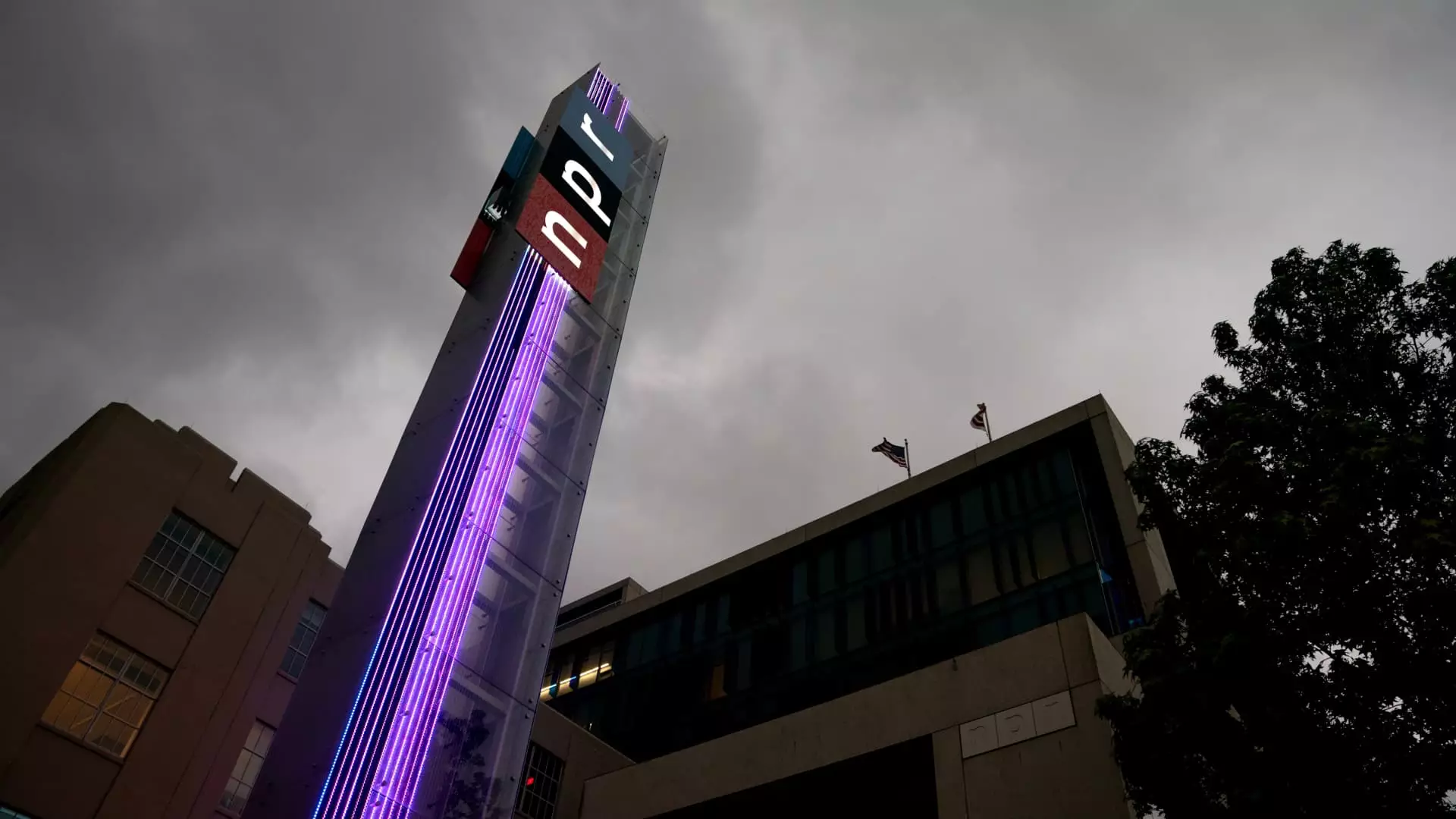In what can only be described as a hostile maneuver against free expression, National Public Radio (NPR) has taken a monumental step by filing a lawsuit against former President Donald Trump. This legal action follows Trump’s controversial executive order that effectively seeks to put an end to federal funding for public broadcasters. NPR’s claim, supported by several public radio affiliates, highlights Trump’s intent to obliterate not just funding, but also the very essence of independent journalism. By targeting this critical resource, the ex-President appears to be wielding an alarming influence over the freedom of the press, an act that mirrors authoritarian tendencies seen in oppressive regimes desperate to control the narrative.
The Chilling Effects on Democracy
At the heart of NPR’s lawsuit lies the First Amendment, one of the bedrocks of American democracy that safeguards the freedom of speech and the press. Trump’s actions have raised serious concerns about the implications of this executive order, which is far more than a mere fiscal measure. It represents a systematic attempt to intimidate and censor media outlets that dare to challenge his narrative. The chilling effect of such a move cannot be overstated; millions of Americans depend on public media for impartial news coverage and essential information. By delegitimizing public broadcasting, Trump undermines the democratic foundation that supports a vibrant and informed citizenry. This not only threatens independent journalism but also endangers the ability of the public to engage in substantive discussions about societal issues.
A Prehistoric View of Public Funding
Trump’s rationale for cutting public media funding—that it’s both outdated and detrimental to journalistic independence—reflects a misinformed view of the role public broadcasting plays in a democratic society. The very concept of public media is rooted in the idea that diverse voices and viewpoints should be presented, particularly those that might not receive coverage in the commercial sector motivated by profit. Public broadcasting exists to balance the media landscape, offering informed discourse and critical news coverage that often serves underrepresented communities. To dismiss this vital service as “corrosive” demonstrates a fundamental misunderstanding of journalism’s purpose and the needs of an increasingly polarized society.
A History of Erosion
The attack on NPR is not an isolated incident; it follows a decades-long trend of undermining public broadcasting institutions in the United States. Since the Reagan Administration, there has been a continuous push to limit federal support for these platforms. Trump’s decision only escalates this disturbing trajectory and reignites a debate on funding sources for news outlets. While NPR manages to secure a mere 1% of its revenue from federal sources, the insinuation that public broadcasting is somehow a financial burden on taxpayers is misleading at best. It is paramount to recognize that public funding allows journalists to focus on critical social issues without succumbing to the corporate pressures that compromise the integrity of commercial media entities.
A Casus Belli for Media Independence
The lawsuit’s claims are poignant, arguing that Trump’s order amounts to viewpoint discrimination—an attempt to silence dissenting voices appealing for accountability. This isn’t merely about government funding; it is about protecting journalistic integrity from political maneuvering. If the government, under Trump’s influence, can selectively strip funding from those it deems ‘biased,’ we are venturing into murky waters where the truth becomes subject to governmental approval and control. History has shown us the dangers of allowing political influence to dictate media funding; when governments undermine independent journalism, they jeopardize the entire democratic process.
The Fight for Survival
NPR’s determination to challenge Trump’s overreach is commendable but also indicative of the uphill battle faced by public media in today’s political landscape. The implications of this legal confrontation extend beyond funding; they touch the very core of what it means to have a free press in a democratic society that values diverse opinions. If successful, this lawsuit could set a crucial precedent that reaffirms the independence of not just public broadcasters, but all journalistic endeavors that strive to serve the public interest. It invites all citizens to reflect on their responsibility to safeguard the institutions that ensure democracy thrives in an age defined by misinformation and polarized discourse.

Leave a Reply